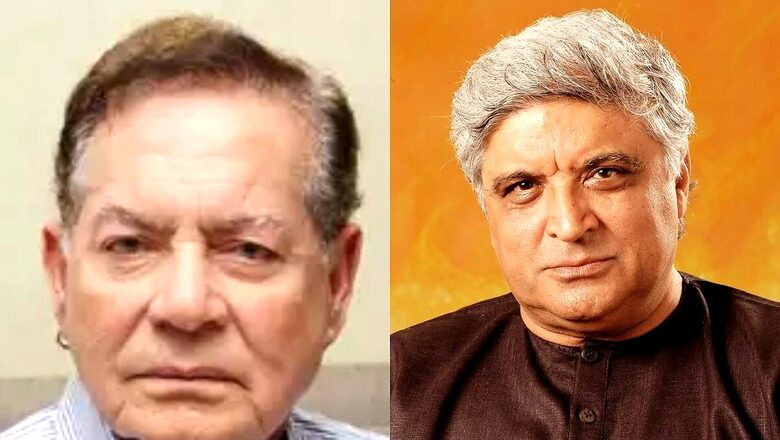
views
Javed Akhtar and Salim Khan gave much importance to ‘the mother factor’ in their hit films like Deewar, Trishul and Shanti. As noted in their Prime Video documentary, Angry Young Men, this likely stemmed from the fact that both Salim and Javed lost their mothers at a young age. Shweta Bachchan also noted that the mother figure always acted as an emotional tug in Salim-Javed’s films and the issue was always with the father.
Salim Khan said, “I couldn’t be with my mother from the age of five to nine because I couldn’t go near her. My mother had tuberculosis. The was no cure for TB at that time. So she’d look at me from a distance. One day she saw me playing and asked, ‘Who is this boy? Whose child is he?’ The maid told her, ‘He’s your son.’ She called for me. I was playing with some other kids.”
“She called for me and then asked me to stop at a distance. I stood there, she looked at me and then broke down into tears. She was then taken inside the house. Even today, when I recollect that scene when I’m having a drink in the evening, without provocation, tears start rolling down my face. It’s not that I feel bad for myself, I wonder what she was going through. I was the youngest of seven brothers and sisters. Everyone had gone their own way, my sisters got married. I was the only one left. So my mother always worried about me.”
Salim Khan added that he was very scared of his father. He said, “He was famous for being strict and disciplined. The moment we heard his footsteps, we’d quickly run and sit down with our books… A few days after my mother died, my father became very close to me. He took me to watch cricket matches, shopping, all that. And then he died. That loneliness was scary.”
Meanwhile, Javed Akhtar recalled, “On 17th of January, I was eight years old in 1953. She (his mother) died on the 18th. The last time I saw her was in that white shroud. For months, I used to see the shroud in my dreams and even in bright daylight, I would be slightly scared of entering a room if there was nobody in the house… But this is something I never shared with anybody.”
“Children are very secretive and very complicated creatures. They never share their world with anybody. Now I am on the wrong side of seventies, and I miss my mother sometimes. It is funny. My mother died when she was perhaps 36. So am I missing, at the age of 76, I’m missing a woman who was 36. It’s a bit bizarre,” he said.
Javed continued, “Life was not devoid of love and attention but yes, we’d fantasise a father and whenever we’d meet him, we’d be very happy. But I’m afraid that was a rare event. He was in Bombay and I don’t think financially he was in a position. He himself was living in one room. He was trying to find some foothold in the film industry and our mother had injected some kind of hero worship of our father in us. But there were many moments of disappointment I remember.”
As for Angry Young Men, the three-part series looks at how Salim-Javed changed Hindi cinema in the 1970s with their powerful scripts and the famous ‘Angry Young Man’ character. Featuring insights from the duo and industry stars, it shows how their work in blockbusters like Sholay, Deewaar, and Don captured a generation and made a lasting cultural impact. The docuseries aims to provide a personal and honest look at their lives, their writing, and their legacy.













Comments
0 comment